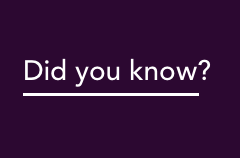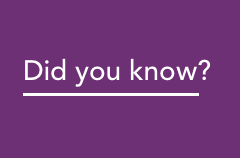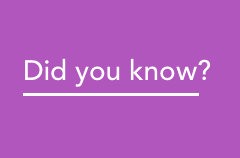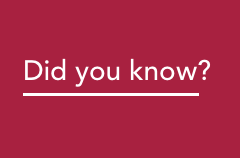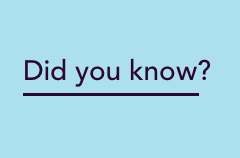Governance, processes and policies
AEMO is committed to operating ethically, efficiently and effectively, and in line with best practice in corporate governance. This page outlines the processes and policies that help us do this.
How we operate
AEMO is registered as a public company limited by guarantee. We are a not-for-profit organisation; our operating costs are recovered through fees paid by market participants.
We operate within a broader energy market governance structure, alongside the Energy Advisory Panel (EAP), the Australian Energy Market Commission (AEMC) and the Australian Energy Regulator (AER). This approach was endorsed by the 2015 Review of the Governance Arrangements for Australian Energy Markets as being fundamentally sound and among best practice internationally.
AEMO’s functions are prescribed in its Constitution and in legislative instruments such as the National Electricity Law and National Gas Law; and rules made under them, the National Electricity Rules and National Gas Rules, as well as Western Australian provisions such as the Wholesale Electricity Market Rules.
Our Board
AEMO operates under the governance of our Board of Directors, which oversees AEMO’s business affairs to ensure that the company meets its corporate objectives and responsibilities while at all times complying with relevant laws and regulatory regimes. The Board also monitors the performance and cost-effectiveness of AEMO’s operations and systems. The Board is accountable to AEMO’s members.
The majority of the Board’s directors must be independent of management and free of any relationships that could interfere with their ability to exercise their independent judgement.
Board policies and charters
To support robust corporate governance, the Board operates in line with the following policies and charters.ci
-
21/07/2021
AEMO Constitution
The Constitution sets out the rules governing AEMO, including the role of members and directors, and processes guiding AGMs.
623.97 KB -
17/12/2020
Board Charter
The Charter defines the roles, responsibilities and requirements of AEMO’s Board of Directors.
618.34 KB -
18/11/2022
Nomination Committee Charter
The Charter defines the duties, composition and meeting requirements of the Board’s Nomination Committee.
166.67 KB -
18/11/2022
People and Remuneration Committee Charter
The Charter defines the duties, composition and meeting requirements of the Board’s People and Remuneration Committee.
171.33 KB -
18/11/2022
Finance, Risk and Audit Committee
The Charter defines the duties, composition and meeting requirements of the Board’s Finance, Risk and Audit Committee.
297.3 KB -
18/11/2022
Technical, Markets & Systems Committee Charter
The Charter defines the duties, composition and meeting requirements of the Board’s Technical, Markets & Systems Committee.
156.86 KB -
07/06/2016
Director Interests Protocol
AEMO’s conflict of interests and confidentiality policy as it relates to Board directors.
114.37 KB
Director appointment process
The appointment of a new director occurs when a current director has completed two terms on the Board or steps down for other reasons. It follows a documented process that ensures that stakeholders are consulted, the Board’s independence is maintained, and the right candidate is selected.
Appointment process
-
Identify requirements
The Board identifies the desired skills of the new director and whether the new director meets the independence criteria.
-
Search process
Government members are advised of the search for a new director and are given the opportunity to nominate candidates. At the same time, a search firm engaged by AEMO starts the search process.
-
Selection panel
Following the creation of a long list of candidates by the search firm, the selection panel determines a short list. Short-listed candidates are interviewed by the selection panel, which makes recommendations.
-
Special General Meeting
The Board considers the recommendations. At a Special General Meeting, members consider the recommendations and approve a submission to the Council of Australian Governments Energy and Climate Change Ministerial Council (ECMC), formerly the COAG Energy Council. Alternatively, members may refer the matter back to the selection panel for further consideration.
-
COAG Energy Council
The ECMC considers the recommendations and approves the appointment of the new director. Alternatively, they may refer the matter back to the selection panel
Organisational policies
We are committed to sound and ethical corporate practices and decision-making; the following policies help to safeguard the integrity of AEMO as an organisation.
-
16/04/2025
Group Risk Management Policy
The responsibilities and tasks that support the management of risk at AEMO.
247.33 KB -
16/04/2025
Group Compliance Policy
153.75 KB -
16/04/2025
Group Fraud and Corruption Policy
The responsibilities and tasks that support the detection and prevention of fraud and corruption.
293 KB -
03/09/2024
AEMO Group Code of Conduct
AEMO's code of conduct sets out the basic standards of behaviour for all people representing our organisation, including employees, directors, contractors and consultants.
979.21 KB -
21/06/2022
Modern Slavery Policy 2021
280.85 KB -
13/03/2025
Whistleblower protection policy
A policy to encourage eligible whistleblowers to report known or suspected organisational misconduct within, or involving AEMO, the process for making a report and the protections afforded to eligible whistleblowers.
351.92 KB
Modern slavery statement
AEMO’s Modern Slavery Statement made in accordance with the Modern Slavery Act 2018 (Cth) reporting requirements.
Memoranda of Understanding (MOUs)
To support effective industry governance, and a clear understanding of roles and responsibilities, AEMO has signed MOUs with key bodies within Australia’s energy industry.
-
28/09/2016
Memorandum of Understanding: AEMC and AEMO
An MOU between AEMO and the Australian Energy Market Commission.
375.42 KB -
28/09/2016
Memorandum of Understanding: AER and AEMO
An MOU between AEMO and the Australian Energy Regulator.
551.82 KB -
28/09/2016
Memorandum of Understanding: ASIC and AEMO
An MOU between AEMO and the Australian Securities and Investments Commission.
241.43 KB -
28/09/2016
Memorandum of Understanding: CER and AEMO
An MOU between AEMO and the Clean Energy Regulator.
1.37 MB

